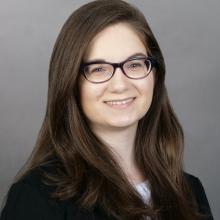Explore, Plan, Build, and Launch: A Flexible Response to Quality Faculty Development During a Crisis - Part 1
Workshop Session 1
Brief Abstract
One of the most important considerations during an institution’s response during an emergency is faculty development and readiness to teach online. During this workshop, participants will be provided with actual resources and templates to help facilitate an emergency response to faculty development tailored to their specific role and their institution.
Presenters




Extended Abstract
One of the most important considerations during an institution’s response during an emergency is faculty development and readiness to teach online. However, the development and implementation of new faculty development programs is often a detailed and extended process with numerous limitations that may not be suitable during a crisis.
As such, it’s important for institutions to have processes in place to address faculty development that can be easily adapted during times of crisis to meet the unique needs and challenges that may be presented without diminishing the quality of instruction that is delivered to its most important asset – its students.
In 2020, a large higher-eduation institution took steps to do just that and during the 2020 pandemic was able to apply effective project management and agile practices to implement institution-wide policies and processes for faculty preparedness that allowed for minimum disruption without compromising quality. This included the design, development, and implementation of a brand-new faculty development program that focused on the essentials of quality online/blended instruction.
During this workshop, participants will learn first-hand about the pandemic response, lessons learned, and future implications for faculty development that can be applied to similar institutions. Participants will also be provided with actual resources and templates to help develop an emergency response to faculty development that is tailored to their specific role and institution.
Primary Audience: This workshop will be primarily tailored to instructional designers, faculty, as well as any other interested training professional.
Workshop Outcomes: By the end of this workshop participants will be able to plan, design, and implement a faculty development program suitable for an emergency response. Specifically,
- Trainers/Instructional Designers will explore strategies to quickly develop a quality faculty development course/program based on the essentials of quality online/blended course design.
- Faculty will explore strategies and resources to help quickly transition a classroom-based course to a quality online/blended course during an emergency.
Workshop Format:
During this workshop, participants will engage in interactive breakout sessions with hands-on discussions and interactive group activities led by an expert facilitator to help guide and answer questions. Participants will also be able to collaborate with groups of individuals with similar roles and work to design and evaluate an individualized approach to faculty development during an emergency.
- Introduction (5 minutes)
- Expert Presentation and Initial Q/A (20 minutes)
- Interactive Discovery/Breakout sessions (45 minutes)
- Breakout sessions will be broken down into smaller segments: Explore, Plan, Build and Launch and led by an team of expert facilitators available to provide guidance and answer participant questions.
- Participants will be split into groups with individuals of similar roles and will participate in engaging discussions and collaborate to evaluate and design an individualized approach to faculty development during an emergency.
- Participants will be provided with downloadable handouts, templates, and other resources.
- Whole group wrap up and Final Q/A (20 minutes)
Key Takeaways:
- Trainers/Instructional Designers: A template for a faculty development course that focuses on the essentials of quality online/blended course design that can be easily scaled and adapted to a specific institution.
- Faculty: Resources and templates to easily pivot online during an emergency including a course blueprint, course development checklist, and more.
- All participants will walk away with practical knowledge to design quality online instruction during a crisis and will also earn a digital badge.




